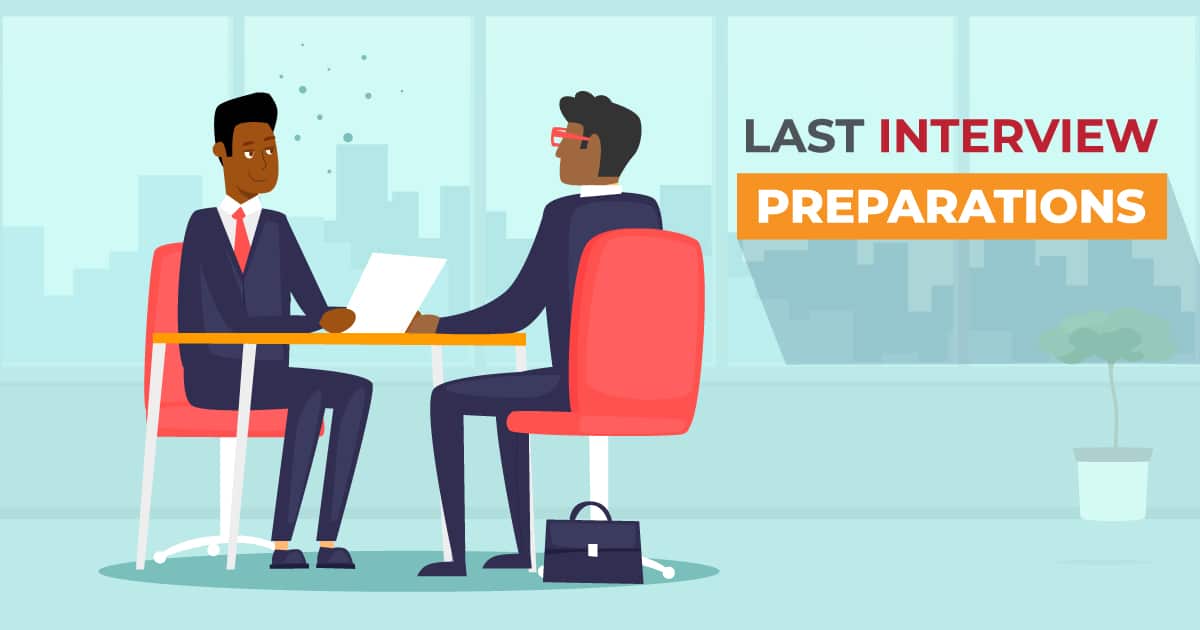The email finally arrives: “We’d like to invite you to a final interview with our CEO.”
You’ve made it through HR screenings, practical tests, and manager-level interviews. Now you’re in the final round interview — the last hurdle before an offer. Exciting, right? But also nerve-wracking. Many candidates wonder: What does the final interview mean? What questions should I expect? How do I stand out when I’ve already impressed them?
This guide answers those questions and more. You’ll learn:
- What to do after the interview
- What a final interview really means
- The most common final interview questions (with sample answers)
- What to expect in a CEO interview
- Salary discussions in the last round
- Final interview tips that set you apart
Table of Contents
What Does a Final Interview Mean?
A final interview signals that you’re among the top few candidates. Typically, only 2–5 applicants make it this far. Everyone on the shortlist is highly qualified, so this round is less about technical skills and more about:
- Culture fit: Do you align with the company’s mission and values?
- Long-term potential: Can they see you thriving and growing in the organisation?
- Leadership qualities: Even for non-manager roles, employers want initiative and problem-solving ability.
Key takeaway: The final interview is not a formality. It’s a high-stakes conversation where decision-makers confirm whether you’re the right long-term hire.
Common Final Interview Questions
Here are the questions you’re most likely to encounter, along with tips and sample answers:
- “Why should we hire you?”
Focus on unique value. Link your past achievements to how you’ll help the company grow. Sample Answer: “Beyond my skills in project management, I bring a track record of reducing costs by 20% while boosting delivery timelines. I see opportunities to apply the same approach here, aligned with your growth goals.” - “Where do you see yourself in 5 years?”
Employers want ambition, but also realism. Tie your career goals to the company’s vision. Sample Answer: “In 5 years, I see myself taking on greater leadership responsibilities in product development, helping drive innovation and mentoring younger talent.” - “What value will you bring to this team?”
Be specific: talk about skills, but also mindset. Sample Answer: “I’m resourceful in problem-solving — at my last job, I designed a workflow that cut client response time in half. I’ll bring that same drive for efficiency here.” - “What are your salary expectations?”
Don’t be caught off-guard. Research industry standards and present a range. Sample Answer: “Based on my research and the responsibilities of this role, I’d expect a range between X and Y. However, I’m flexible depending on total benefits and growth opportunities.”
Final Interview with the CEO: What to Expect
Many final interviews are conducted by senior leadership, often the CEO or a director. These aren’t about nitty-gritty technicalities, they’re about big-picture alignment.
Expect questions like:
- “How do you see yourself contributing to our company’s mission?”
- “What would your first 90 days look like in this role?”
- “What’s a tough decision you’ve made, and how did you handle it?”
- “What kind of leader inspires you?”
Tip: CEOs value confidence, clarity, and vision. Keep your answers concise, thoughtful, and forward-looking. Avoid rambling or overselling yourself.
How to Prepare for a Final Round Interview ?

- Research the Company in Depth
Go beyond the website. Read client reviews, industry news, and leadership interviews. Spot opportunities or challenges the company is facing and prepare to discuss them. - Prepare a 90-Day Plan
If asked, “What would you do if you started tomorrow?”, be ready with a practical outline of short-term goals. - Revisit Your Earlier Interviews
Review what you’ve already said. Stay consistent, but also expand on earlier points with more depth. - Practice Common Questions
Use a mix of behavioral and strategic answers. Prepare stories that showcase problem-solving, adaptability, and leadership.
Keep It Professional — Even in Casual Settings
Some final interviews may take place over lunch or coffee. The casual setting doesn’t mean casual behaviour. Maintain professionalism in how you speak, eat, and interact. Moderation is key: don’t overshare, overindulge, or lose focus.

Salary and Negotiation in the Final Interview
The last round often includes salary and benefits discussions. Prepare by:
- Researching the market rate for your role and location
- Defining your minimum acceptable package
- Being flexible to negotiate total compensation (benefits, flexibility, growth opportunities)
Tip: Let them bring it up first. Answer confidently with a researched range, not a single figure.

Final Interview Tips to Stand Out
- Stay humble: Avoid arrogance, even if you feel the job is already yours.
- Reinforce enthusiasm: Show genuine interest in the company’s mission and team.
- Ask insightful questions: Example: “What qualities make people thrive in this role long-term?”
- Show confidence with composure: Nervousness is natural, but preparation builds calmness.
Questions to Ask in a Final Interview
Don’t leave without asking questions — it shows initiative and cultural curiosity. Good options include:
- “How does this role contribute to the company’s long-term strategy?”
- “What are the company’s biggest opportunities or challenges right now?”
- “How would you describe the leadership style here?”
Can You Be Rejected After the Final Interview?
Yes, final interviews don’t guarantee an offer. Employers may have multiple strong candidates, and decisions often come down to subtle differences in fit, vision, or future potential. That’s why it’s critical to stay sharp until the very end.
What to Do After the Final Interview
- Send a thank-you note or email within 24 hours, tailored to the conversation.
- Reflect on your performance: What went well? What could be improved?
- Stay positive while waiting: Even if you don’t get the offer, you’ve built skills and connections that will help in the next opportunity.
Comparison: Early Interviews vs Final Interview
| Aspect | Early Interviews | Final Interview |
|---|---|---|
| Focus | Skills, experience, technical fit | Culture fit, leadership, long-term potential |
| Interviewers | HR, line managers | CEO, directors, senior leadership |
| Questions | Competency, role-specific | Strategic, vision-based, cultural alignment |
| Tone | Formal, structured | Conversational, big-picture |
FAQ on Final Interviews
The final interview is where the decision-makers — often the CEO, directors, or senior leadership — step in. Unlike earlier rounds that focus on technical ability and experience, this stage evaluates whether you are the right long-term fit. Employers look for cultural alignment, leadership potential, and your ability to think strategically. You might face questions about your vision for the role, how you’ll contribute to growth, or how you’d handle high-level challenges. In short, the final interview determines if they can see you as part of the company’s future.
Preparing for a CEO interview requires a mix of research, clarity, and big-picture thinking. Study the company’s mission, vision, and recent challenges. Be ready to discuss how your skills and mindset align with long-term goals. CEOs value concise, confident answers that show initiative and leadership potential. Avoid over-explaining; instead, use examples of how you’ve solved problems, led change, or driven innovation in the past. Finally, prepare a 90-day plan that demonstrates foresight and readiness to “hit the ground running.”
Yes, and often it will be. While it’s not always guaranteed, many companies reserve compensation discussions for the final stage. To prepare, research industry standards, define your minimum acceptable range, and understand your worth. When answering, frame your expectations around value — highlight how your skills and achievements justify the compensation you request. Employers don’t just want to hear numbers; they want to see that you’ve done your homework and that you’re approaching the conversation professionally and flexibly.
Absolutely. Being shortlisted doesn’t guarantee an offer, as companies often compare multiple highly qualified candidates. At this point, small factors like communication style, cultural fit, or leadership presence can tip the balance. That’s why it’s critical to remain polished, professional, and consistent until the end. Even if you don’t get the role, view the experience as valuable practice. Each final interview builds your confidence, helps refine your strategy, and positions you stronger for future opportunities.
A final interview is more than a test of skills, it’s an assessment of who you are as a professional, how you think, and how you fit into the company’s long-term vision. At this stage, everyone sitting in the room is qualified. What sets you apart is your preparation, your clarity of thought, and your ability to connect your personal values with the company’s mission.
Approach the final interview as an opportunity to move from candidate to future partner in growth. Be ready to articulate your 90-day plan, show resilience under pressure, and convey enthusiasm that feels authentic. Even in casual settings like lunch interviews, professionalism and self-awareness will make you memorable.
And remember, while you cannot control every decision, you can control how you present yourself. Every final interview sharpens your skills, expands your confidence, and positions you as someone who not only wants the job but also has the vision to grow with it. Whether you walk away with the offer or not, the experience makes you a stronger candidate for the next opportunity.





